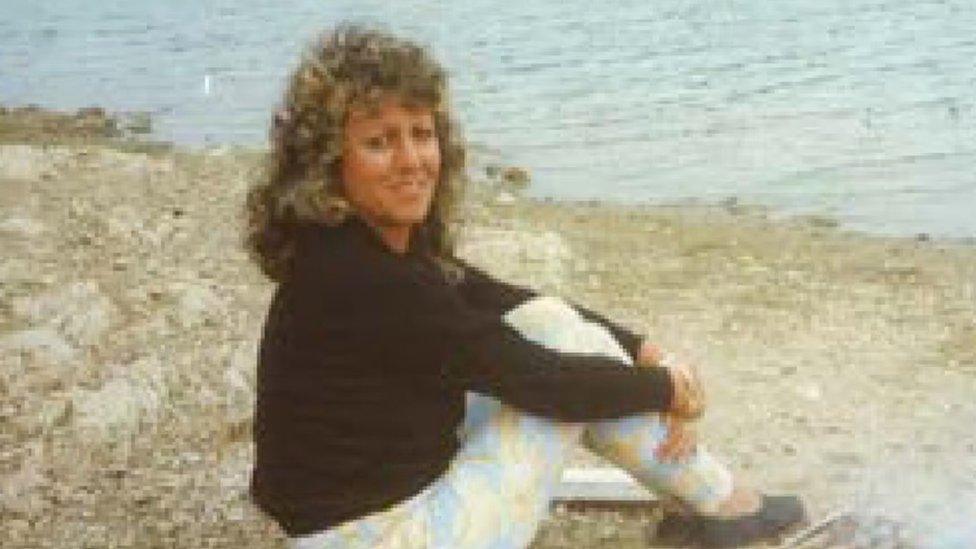Marina Koppel: Man's bloody footprint used to convict him of 1994 murder
- Published

Marina Koppel rented a flat in Marylebone to use for sex work
A man has been convicted of killing a woman almost 30 years ago, with a bloody footprint and a hair stuck to a ring being used to identify him.
Marina Koppel, 39, was found dead by her husband in a flat in Marylebone, central London, in August 1994. She had been stabbed more than 140 times.
The court heard Sandip Patel, 51, had become a suspect in 2022, with his DNA matching a hair discovered in 2008.
He denied murder but was found guilty by the Old Bailey jury.
Earlier in the trial, the court was told a bloody footprint found at the scene matched that of Patel, who is from St John's Wood, north London.
The jury heard his DNA was also discovered to be a match to a hair found by a scientist in 2008 on a ring that had been on Mrs Koppel's finger.
Mrs Koppel, who had two children in her native Colombia, rented the flat in London because she worked as a masseuse and a sex worker, the court was told.

Ms Koppel's family said she was "much loved", "extremely bright, highly intelligent and charismatic"
Her husband, who lived in Northampton, "did not necessarily approve" of her work but "accepted it", jurors were told.
Mr Koppel drove to the capital because his wife was not answering her telephone and found her body shortly before 23:30 BST on the floor of a bedroom where she took clients.
Jurors heard there was blood "everywhere".
Mr Koppel died in 2005, never having discovered who murdered his wife.

The Met's Det Supt Katherine Goodwin said "we may never know the reasons" for Patel's actions
Ms Koppel's sister-in-law and brother-in-law, Mary and Martin Koppel, paid tribute to Ms Koppel, describing her as an "extremely bright, highly intelligent and charismatic person, who saw good in her family and all people she met", adding she was "much loved by all of us".
"Her family and friends would have been in a much better place because of her abundance of energy for life, had she not died," they said.
"We have all suffered these many, many years because we lost Marina so early in life".
Det Supt Katherine Goodwin, head of the specialist casework team for Central Specialist Crime at the Met, said: "Our thoughts and sympathies are with Marina's family and friends and we hope that today's verdict will bring some closure for them.
"Even though Patel has been convicted for the brutal murder of Marina, we may never know the reasons for his actions on that day."
Dan Chester, the Met Police's forensic lead for cold case homicide investigations, said: "Unsolved historic murders can be among some of the most complex and challenging cases for police to solve.
"However, today's result provides an example where forensic science, newer technologies and collaborative working practices have had a positive impact in bringing a brutal killer to justice."
The jury deliberated for three hours and 10 minutes before finding Patel guilty.
He will be sentenced on Friday at the same court.

Listen to the best of BBC Radio London on Sounds and follow BBC London on Facebook, external, X, external and Instagram, external. Send your story ideas to hello.bbclondon@bbc.co.uk, external
Related topics
- Published30 January 2024

- Published20 June 2023
